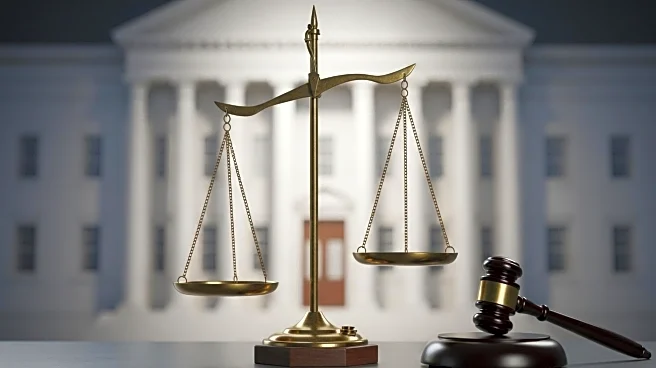What is the story about?
What's Happening?
Sophie Roske, a 29-year-old transgender woman from Simi Valley, California, has been sentenced to 97 months in federal prison for attempting to assassinate Supreme Court Justice Brett Kavanaugh. The plot, which was thwarted on June 8, 2022, involved Roske traveling from Los Angeles to Kavanaugh's home in Chevy Chase, Maryland, with the intent to kill him. Roske was found with a suitcase containing lock-picking tools, a Glock handgun, 37 rounds of ammunition, and a flashlight. Despite the serious nature of the crime, the sentence has been criticized as insufficient by prosecutors, who had sought a minimum of 30 years. Attorney General Pam Bondi announced that the Department of Justice will appeal the sentence, arguing that it does not adequately reflect the severity of the crime.
Why It's Important?
The case highlights the increasing political violence in the United States, particularly against public officials and judicial figures. The leniency of the sentence has sparked outrage among some political figures and commentators, who see it as a failure to adequately deter future attacks on the judiciary. The incident underscores the heightened tensions surrounding the Supreme Court's decisions and the potential for violence as a form of political expression. The Department of Justice's decision to appeal the sentence reflects a broader commitment to ensuring that acts of violence against federal judges are met with appropriate legal consequences.
What's Next?
The Department of Justice's appeal of the sentence will likely lead to further legal proceedings, which could result in a longer sentence for Roske. This case may also prompt discussions about the security measures in place for Supreme Court justices and other public officials, as well as the legal standards for sentencing in cases involving threats to national security and the judiciary. The outcome of the appeal could set a precedent for how similar cases are handled in the future.
Beyond the Headlines
The case raises questions about the intersection of mental health and criminal justice, as Roske's defense cited long-standing mental illness as a mitigating factor. This aspect of the case may lead to broader discussions about how the legal system addresses mental health issues in the context of serious crimes. Additionally, the incident may influence public discourse on the role of political rhetoric in inciting violence and the responsibilities of public figures in maintaining civil discourse.














